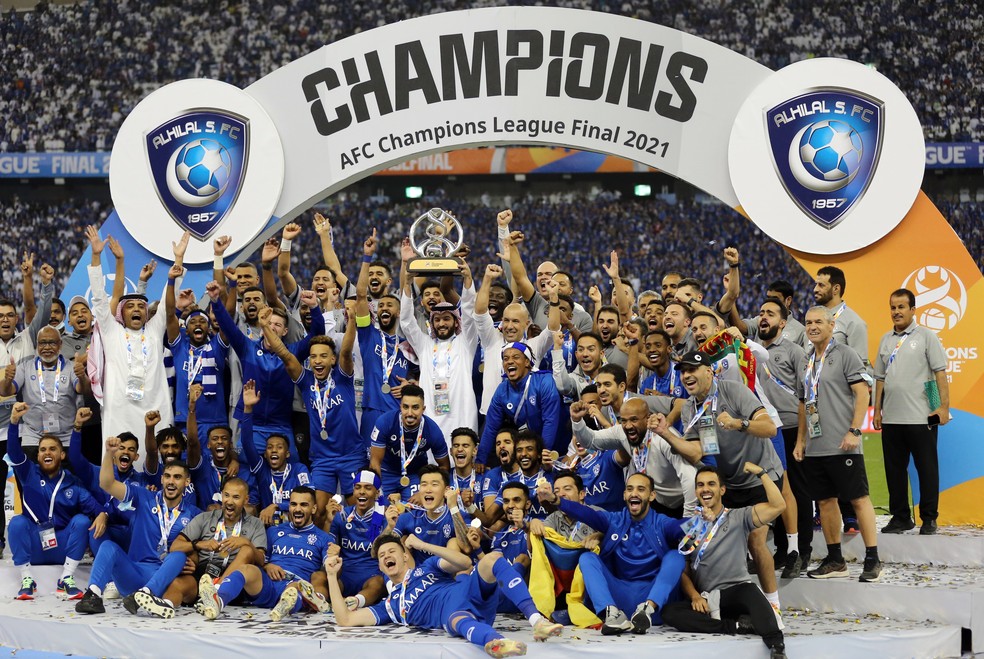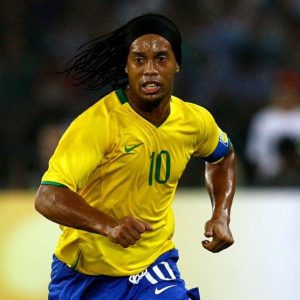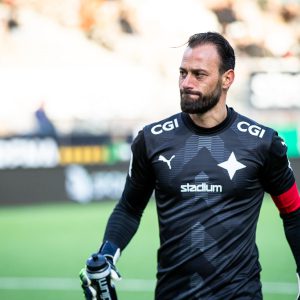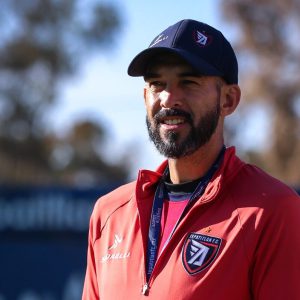

Miguel Moita: “Nowadays, football is getting more dissected”
Miguel Moita is a Soccer Analyst at Al-Hilal SFC and has recently won the 2021 Asian Football Confederation Champions League. In the first part of this exclusive interview, the instructor of the “Building a philosophy – Team identity and Soccer Analysis“ online course at Soccer HUB reflects on the importance of game analysis and reveals his work practices in Saudi Arabia.
The former analyst of AS Monaco, Olympiacos FC, Sporting CP and SC Braga had his first experience at a professional level in the 2008-2009 season, when he joined GD Chaves and ended up accumulating roles in the club’s coaching staff. “I was an analyst, and I complimented it with the role of assistant coach, helping with activation, creating technical exercises, and supporting the head coach’s methodological work inside the pitch. What fascinates me is, without a doubt, that connection between analysis and work on the pitch”, he said.
Nowadays, an analyst has a decisive role in any technical team, because he is an element that has a deep knowledge of the game, the coach’s training methodology, his game ideas, the team’s dynamics, and also the opponents. The Portuguese analyst believes that this function is increasingly an entry gate to professional football.
Nowadays, football is getting more dissected and analysis more detailed. If we think about top clubs, we can see that they have three, four, or even five analysts
“This turns out to be an advantage for many young people from college to penetrate professional football, being able to later develop skills and perform other kinds of roles. Usually, people mistakenly associate the analyst with the camera guy. We have a lot of knowledge in the field of training methodology. We also know how to be in training and read the game. In my case, I have been working with the same head coach for 13 years, and I know what he wants for the team, so it is much easier to combine the analysis of the opponent and our team, filter everything and provide more accurate information”.
His daily routine is invariably fast-tracked, and the staff uses diverse software for an in-depth deconstruction of the opponents and the team itself. “We use Hudl Sportscode along with WyScout, so we manage to have an entire workflow on the same platform. Additionally, we trim some videos and edit them using Studio, making the assimilation process for players and the coach more effective. There is also some statistical data we use from WyScout to combine with the qualitative analysis. These are the main dynamics: we analyze our game to see what we can improve so that we can pass on to the players not only the things we did wrong, but also show what we were capable of doing well. That usually happens when we have matches from Sunday to Sunday. When we have one in the middle of the week or three in a week, we tend to reduce this not to bother the players. On an individual level, in specific cases, we create some compilations for some players with technical and tactical elements that they should improve, according to our style of play”.
Our opponent analysis is not simple. It is not a report. We analyze what they do and what our team can do depending on what the opponent allows us
Miguel has experienced championships such as the Portuguese, French, Greek, and Arabic, with sharped cultural differences in game understanding and behavior patterns. “In Portugal, teams are more focused on the tactical-strategic way of playing, and Greece has a league one level below the Portuguese one, more unbalanced. We were in a team [Olympiacos] in which we controlled almost every game except one or two, so we had to work mainly on offensive organization moments. In France, the competition is very balanced. In my opinion, it is even more balanced than the Portuguese league. Any inferior team struggling to avoid relegation created many difficulties, especially in counter-attack situations. In Saudi Arabia, we have a lot of domination and offensive organization work. We realized that it is not easy to score goals against these teams. Defensively, they often manage to nullify our offensive organization, and we must persist”.
Leave A Reply Cancel reply
You must be logged in to post a comment.
Categories
Latest Courses
-
9 Lessons
-
1 Lesson
-
6 Lessons
You May Also Like
- Blog
- August 1, 2022
- Blog
- June 3, 2022
- Blog
- May 27, 2022
Developed by Brandit Digital Media Services.






1 Comment
I have been earning my coaching badge in Poland. I grew up in Riyadh and watching Miguel and the band of Portugese Coaches Grace my Team was an inspirational feat. I hope I can someday get some guidance and apprenticeship under these coaches before they go onto their next expedition.